Our ocean covers more than 70% of the Earth’s surface
1903 2024
Our ocean covers more than 70% of the Earth’s surface and acts as a temperature-regulating system by providing dynamic transport of warm waters poleward and bringing cooler waters to the tropics.
Bermuda
It also plays a crucial role in absorbing carbon and excess heat from the atmosphere, mitigating some of the effects of climate change.
Ocean science: A window into the health of our planet
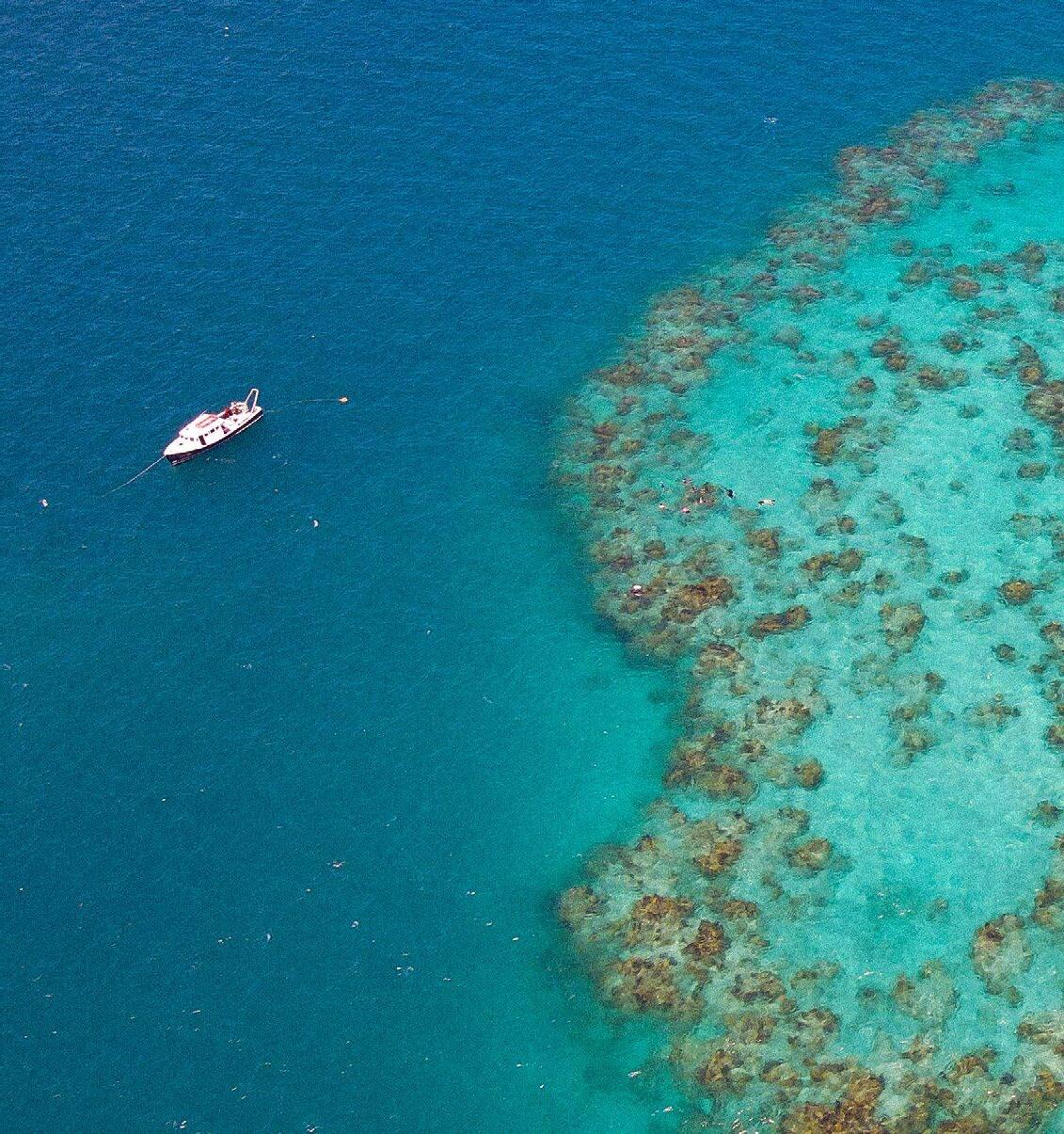
For more than a century, the Bermuda Institute of Ocean Sciences, a unit of the Julie Ann Wrigley Global Futures Laboratory at Arizona State University (ASU BIOS), has been at the forefront of oceanographic research, striving to make a positive impact on our planet’s health. Located in the Sargasso Sea, we have dedicated ourselves to tackling global issues in oceanography, marine conservation and ocean health. Our mission extends beyond the island of Bermuda, reaching both our local community and an international audience.
A WORLDWIDE ENDEAVOR
We operate as a vital unit of Arizona State University, working with partners in an innovative collaboration that combines our efforts in Arizona, Hawai‘i and Bermuda, bridging research and education across the Atlantic and Pacific oceans. Addressing real-world challenges with direct human benefits and merging research results with societal issues, we represent the future of oceanographic research innovation, advancing understanding of the ocean’s importance to the planet’s overall health.
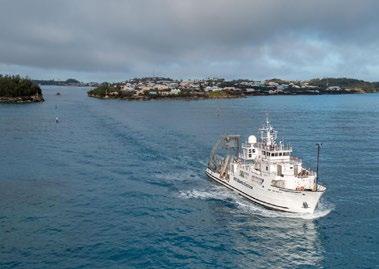

OBSERVING THE OCEAN’S PULSE
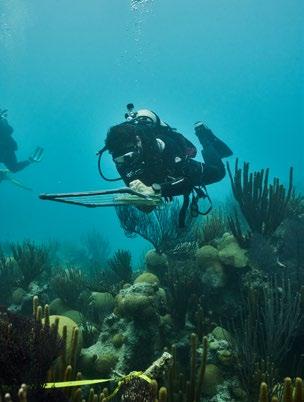
ASU BIOS hosts the planet’s longest set of ocean observations, anchoring a unique part of a global ocean observing system that monitors the real-time physical state of the Atlantic Ocean. Enabling these vital observations is our world-class, 170-foot research vessel, R/V Atlantic Explorer. It is part of the U.S. University-National Oceanographic Laboratory Systems academic fleet, as well as a fleet of autonomous underwater vehicles to conduct high-resolution surveys of the ocean.
Ocean science
Diving into research
Since its beginnings in 1903 as a seasonal field station, ASU BIOS has grown into an internationally recognized center for ocean and atmospheric science research. Hosting some of the longest-running oceanographic and atmospheric observation programs in the world alongside top-tier scientists, we stand as a fact-based voice in a crowded conversation.
Global partnerships and collaborations support our research programs across the different branches of oceanography— biological, chemical, physical and geological—as well as our work across the related disciplines of atmospheric and environmental sciences, resource monitoring and conservation, and risk prediction.

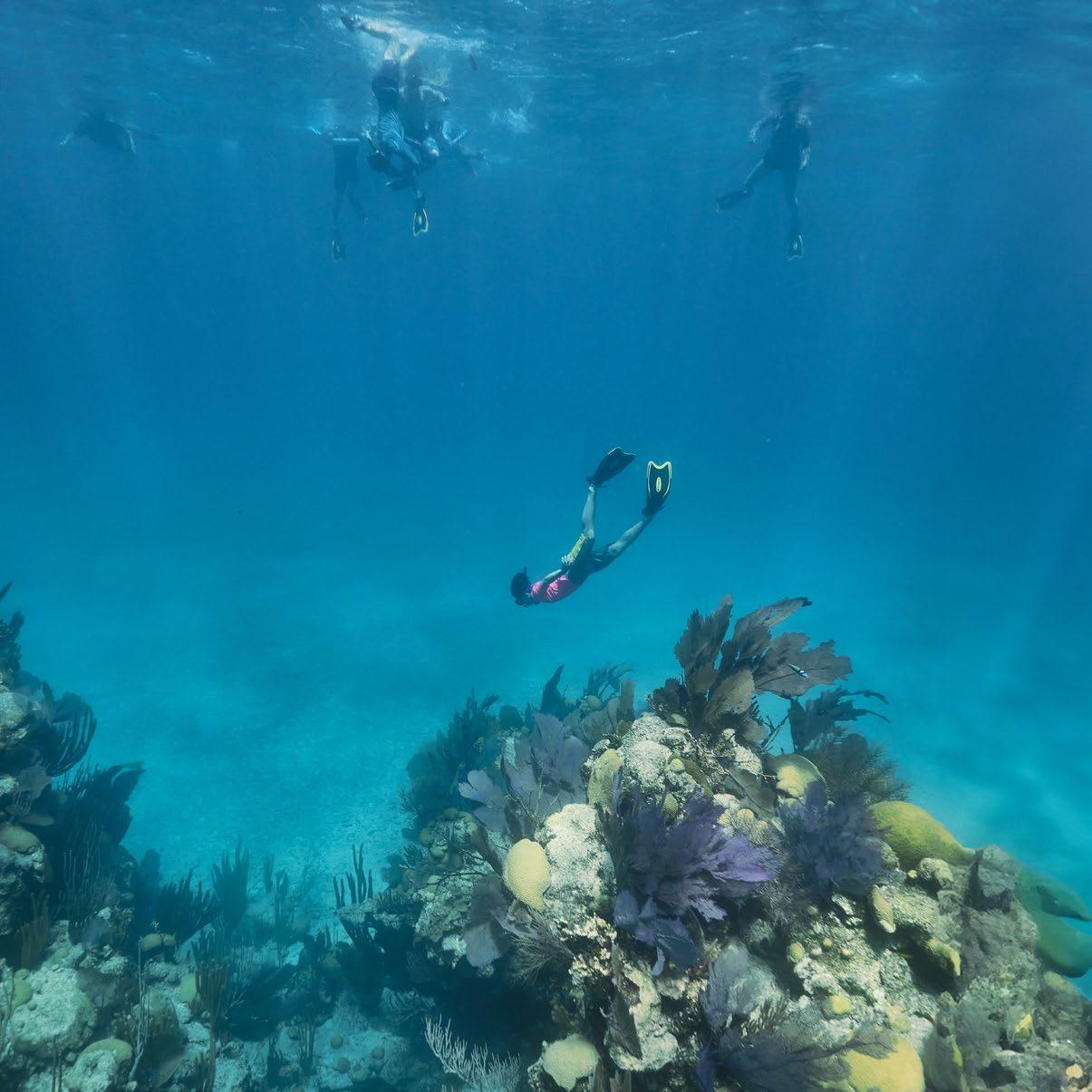
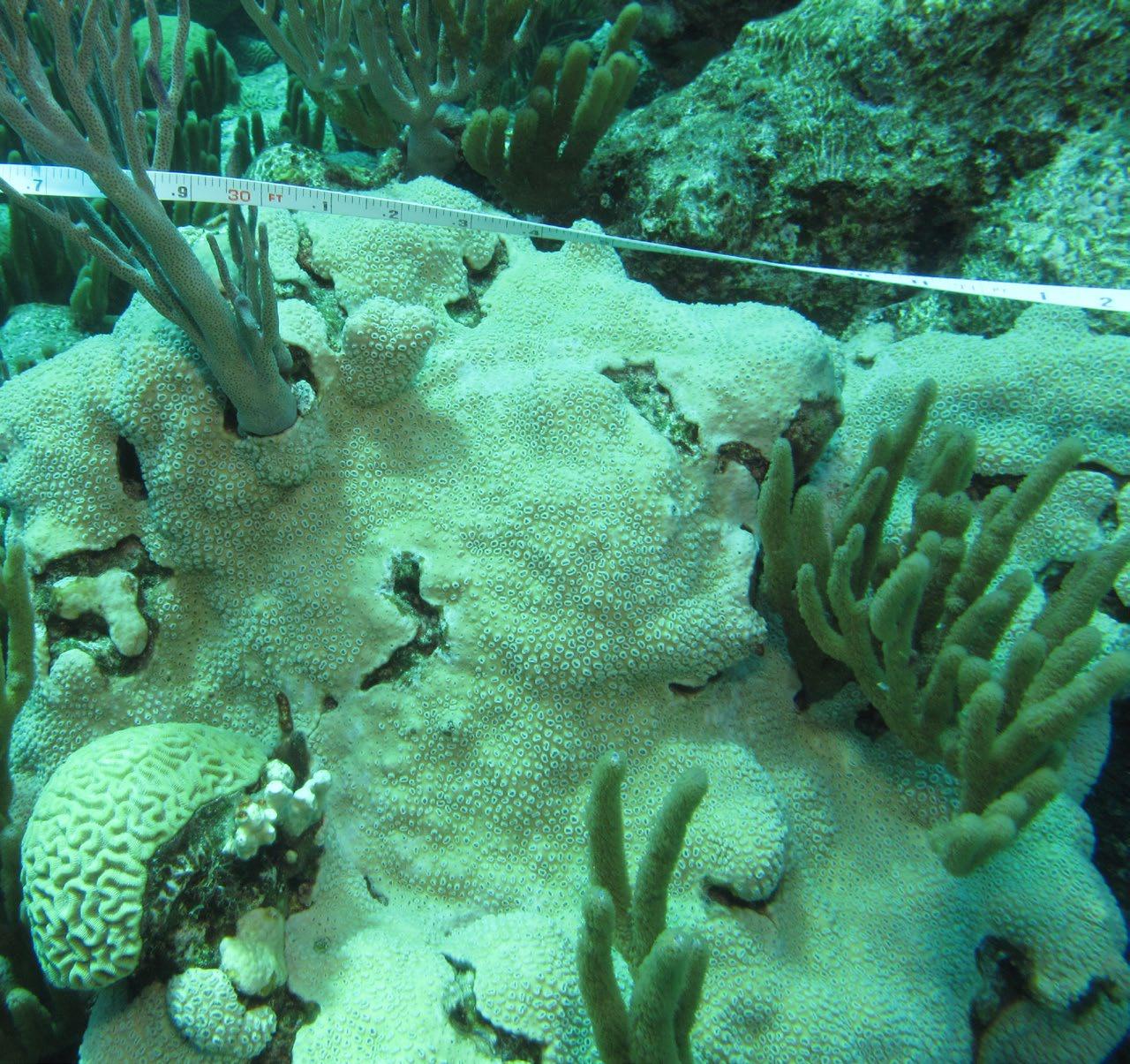
TIME SERIES
Repeated observations of physical, chemical and biological parameters in the water column provide the long-term data sets necessary for scientists to better understand ocean processes, including how the ocean is responding to global climate change.
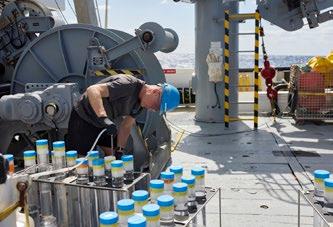
AUTONOMOUS ROBOTICS AND SENSOR SYSTEMS
We are enhancing and leveraging our longstanding time-series programs through the use of underwater vehicles, robotics and sensors to provide continuous observations of important biogeochemical processes over broad areas of the oceans.
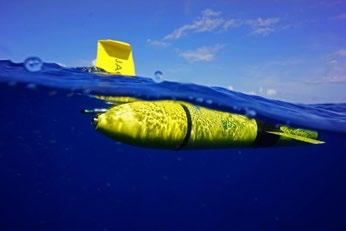
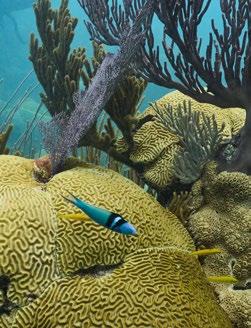
CORAL STUDIES
By studying corals and reef ecosystems, scientists gain a more complete understanding of how climate change and ocean acidification impact these environments on local, regional and global scales. Other areas of active research include coral light-use efficiency, reproduction and recruitment, and reef habitat mapping.
Research
OCEAN BIOGEOCHEMISTRY
Scientists are working to better understand the biological, chemical and physical processes that control the ocean’s carbon, nitrogen and sulfur cycles — global nutrient pathways that sustain life on land and in the water. Other areas of research include factors that influence the exchange of carbon dioxide between the ocean and the atmosphere, and the linkages between biogeochemical processes and climate variability.
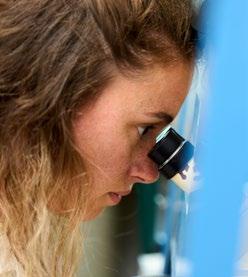
CLIMATE CHANGE
Research aims to improve our understanding of the effects of climate change on marine organisms and ecosystems, the role of the ocean in the regulation of Earth’s climate, and the response of ocean cycles to climate change.

ENVIRONMENTAL MONITORING
Consistent monitoring of Bermuda’s marine resources (fish and corals), groundwater reserves and air quality allow government representatives to make informed decisions. We provide a wealth of environmental research, ecosystem mapping and monitoring capabilities.
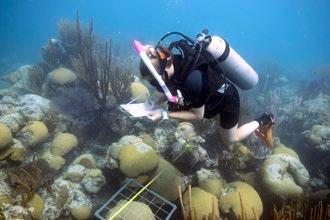
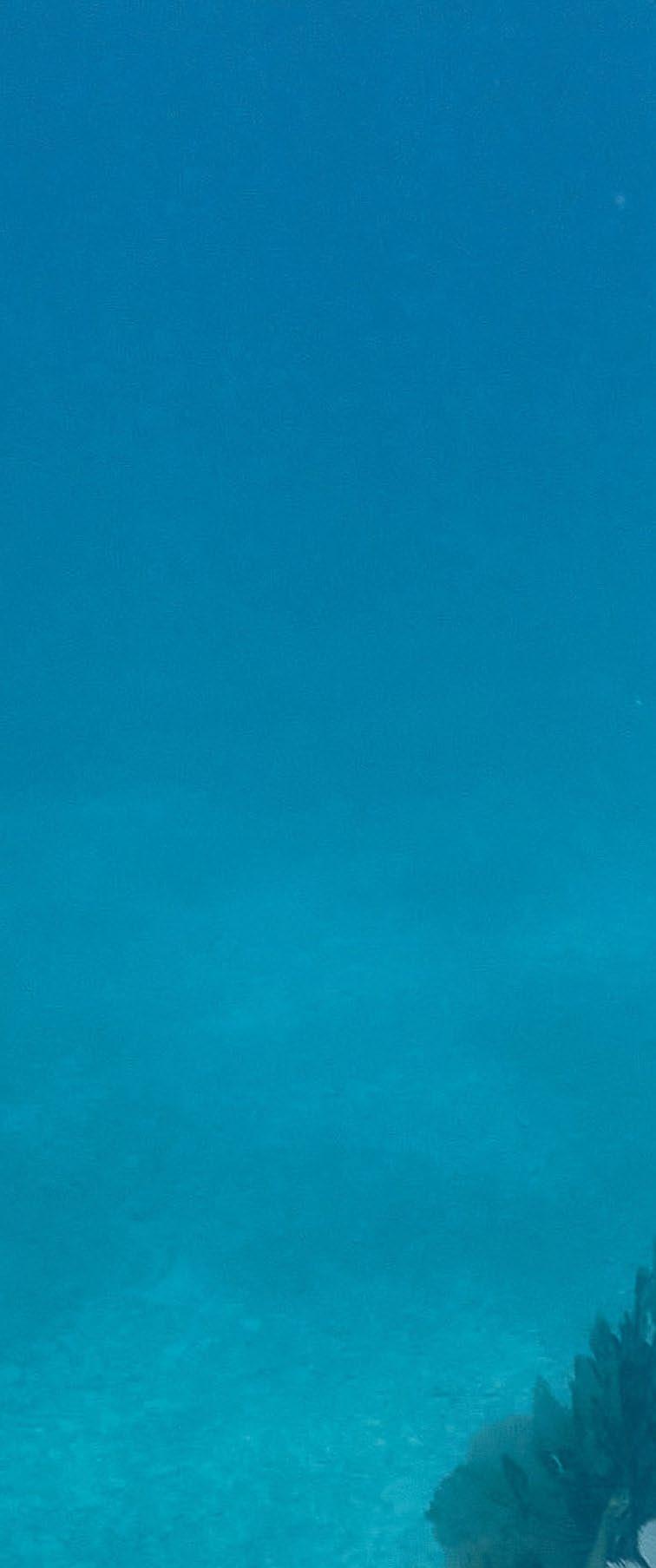

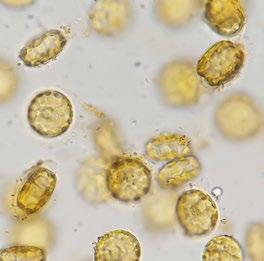



MICROBES AND PLANKTON
The open ocean, and the Sargasso Sea in particular, is home to a diverse collection of organisms. Our researchers utilize the rich marine environment surrounding Bermuda to study life in the ocean. Marine microbes and plankton influence the biology and chemistry of the ocean, and thereby the entire food web, as well as the ocean’s climate-related biochemical cycles.
HUMAN HEALTH
We use a variety of molecular and genomic tools to address issues with direct relevance to society, including the early detection of environmental stress on ocean ecosystems and the identification of specific biological properties and compounds in marine invertebrates for application in medicine and biotechnology.
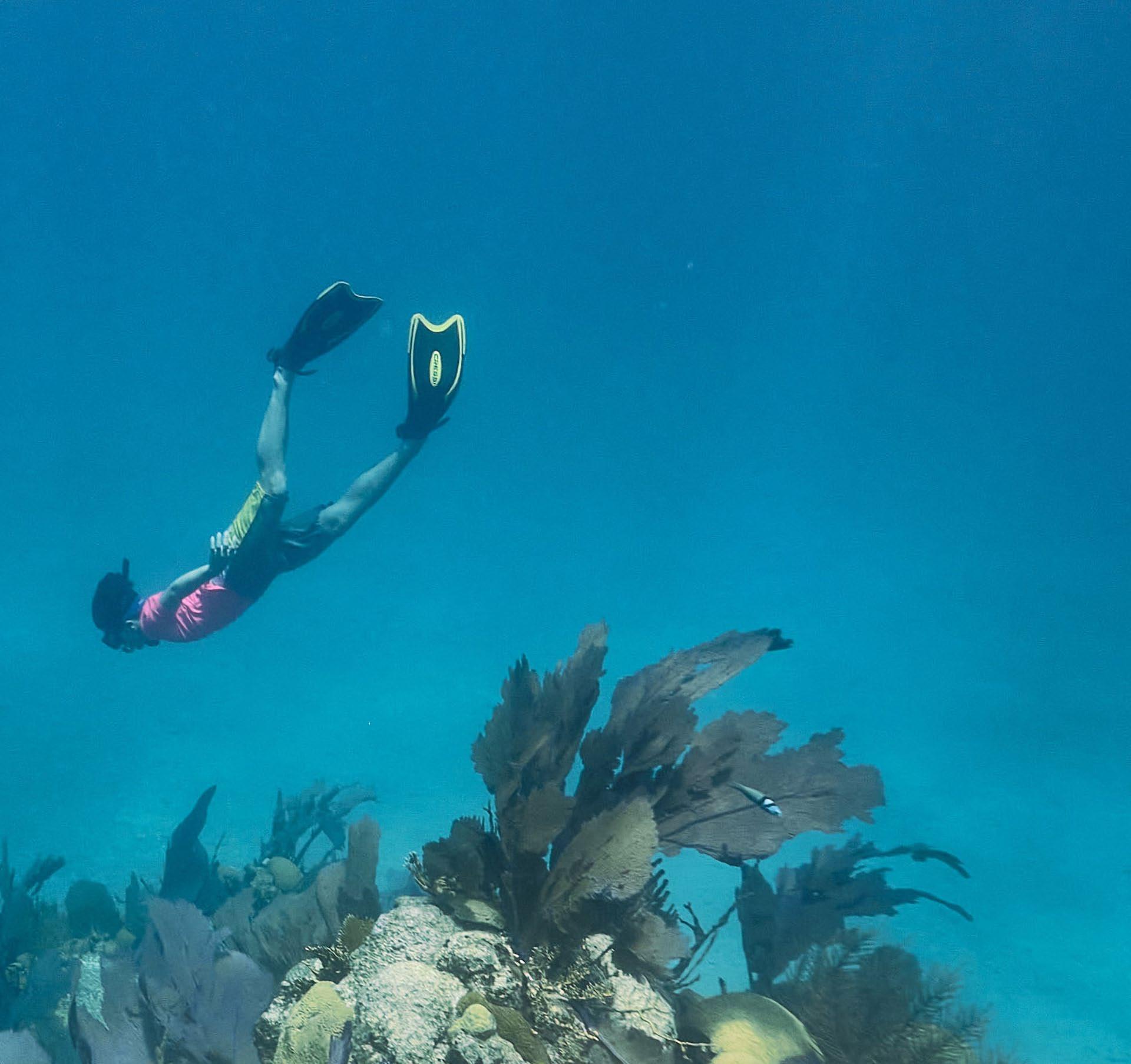
RISK PREDICTION INITIATIVE
The Risk Prediction Initiative promotes productive dialogue between scientists and (re)insurers involved in catastrophic risk. RPI works to refocus scientific research toward answering industry questions and translates this research into meaningful, useful results for its members.
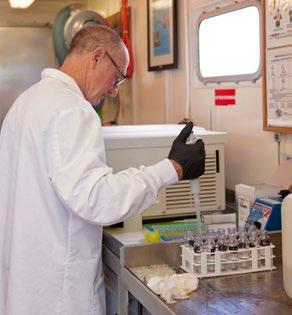
Unlocking knowledge through education
Education is at the center of our mission, linking scientific research to hands-on learning opportunities for students in Bermuda and those visiting from across the globe. For generations, our education programs have contributed to students’ academic achievement, helping them understand the complex workings of the natural world and the role of scientific research in developing solutions to local, regional and global environmental challenges.
As one of the largest and most innovative universities in the U.S., ASU is committed to re-imagining education at all levels, growing local educational programs in Bermuda and expanding the reach of those offerings to include visiting students. Its renowned expertise in and commitment to distance learning opens doors to a world of educational possibilities. Through ASU Online, students in Bermuda and around the world are able to access over 200 undergraduate and graduate degree programs, all crafted and taught by the same faculty who lead the campus immersion programs. This means that no matter where you are, a high-quality education is within your reach.
The School of Ocean Futures, with its world-class faculty, actively advances research, knowledge, inquiry, learning and teaching across the Pacific and Atlantic oceans –diverse and invaluable resources that drive the majority of Earth’s climate, harbor most of its life and have inspired pioneering exploration and discovery throughout recorded history. As part of the Global Futures Laboratory and the College of Global Futures, the School of Ocean Futures is affiliated with thought leaders actively advancing our understanding of oceans, marine life, the management of marine resources, marine conservation, innovation, policy and economics — providing increased opportunity to merge research results with societal issues.
We welcome learners of all ages to embark on this exciting voyage, where the ocean’s mysteries meet the boundless horizons of education. Dive into a world of learning with us.
FIELD STATION COURSES FOR UNIVERSITY STUDENTS
University students from around the world can participate in a variety of courses, each providing unique opportunities to explore contemporary topics in ocean science while expanding their field and laboratory skills, and gaining valuable knowledge of problem solving, communication and the collaboration required to gather reliable scientific data. Students have the opportunity to learn directly from leading researchers in their field while taking advantage of a beautiful location and dedicated classroom facilities.
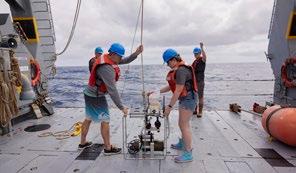
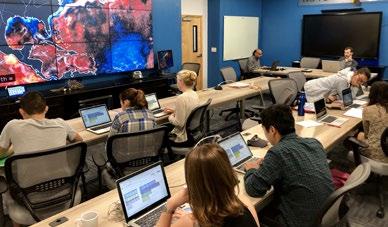
INTERNSHIP FOR UNIVERSITY STUDENTS
Undergraduate and graduate research internships provide students with a springboard to future careers in ocean and atmospheric sciences. Students are introduced to the techniques, skills and intellectual processes required to conduct research in oceanography and the marine sciences.
Students learn the meaning of “doing science” as they work their way through experimental design, data collection and interpreting their results. The success of our internships is reflected in both the alumni who have become successful in their research fields and the number of students who have published their research in peer-reviewed scientific journals or disseminated their findings via conference presentations.
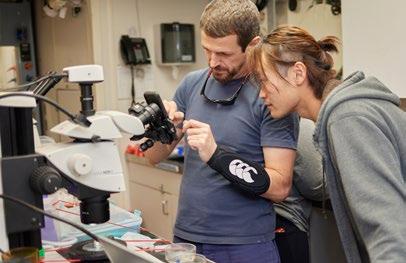
Internships provide high-quality mentorship and learning opportunities to university students from around the world. By engaging directly with researchers, students receive unique opportunities to explore contemporary ocean science topics, expand field and laboratory experience in a subtropical marine environment, and work on collaborative research projects alongside our scientists.
Higher ed programs
Engagement
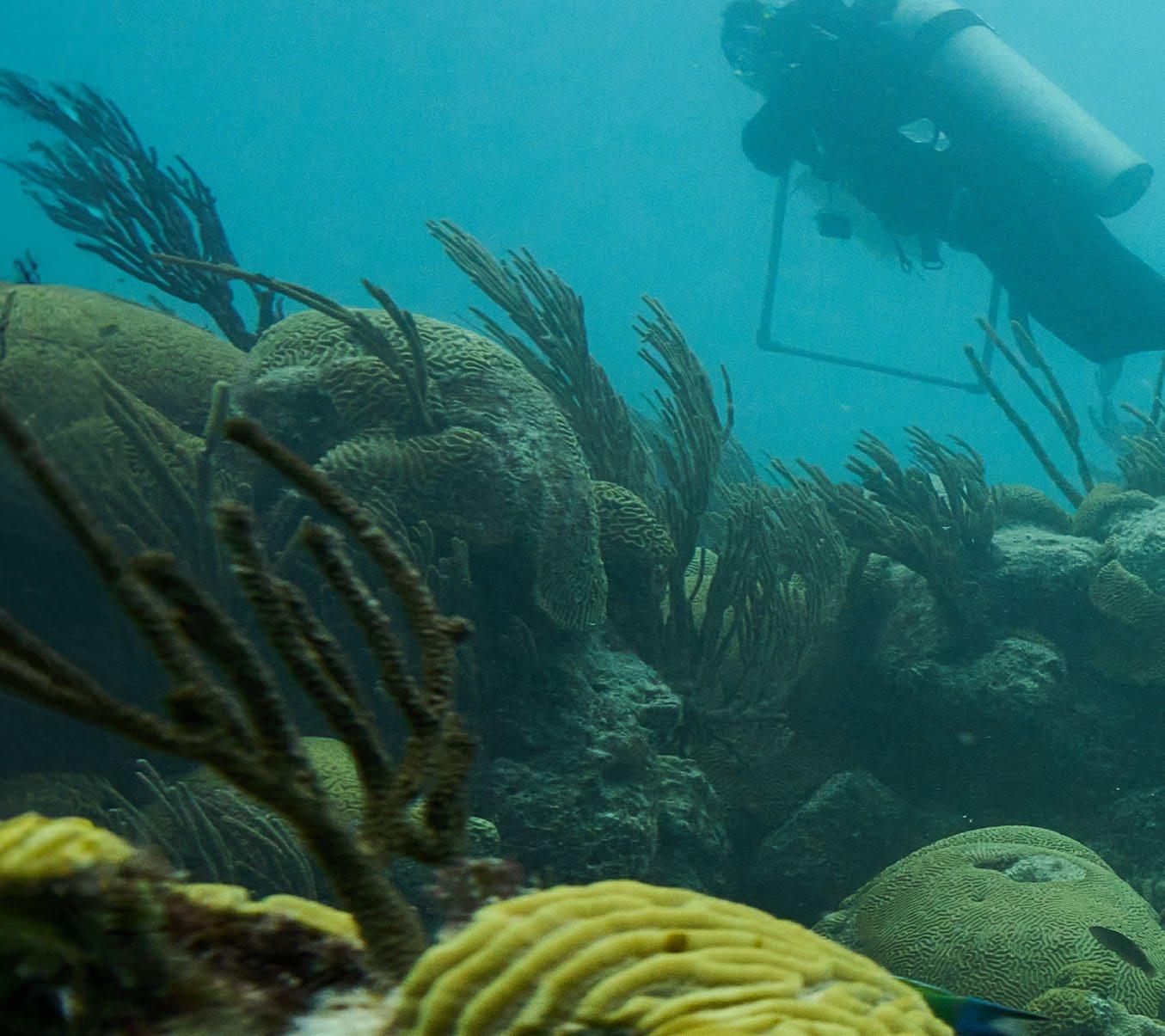
GLOBAL LEARNING EXPERIENCES
Every year, more than 30 groups visit us to take advantage of research and education opportunities, as well as the beautiful location and dedicated classroom and lecture facilities. We offer a variety of classroom and field activities for students of all ages and work with visiting groups to tailor courses to meet students’ needs, curriculum metrics and learning goals.
Our education staff, faculty and interns work together to direct and supervise field trips and lab sessions, as well as provide lectures and excursions on a variety of timely and relevant topics.
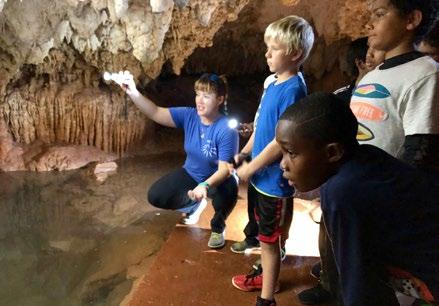
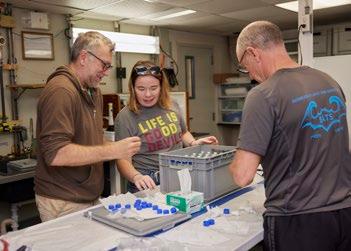
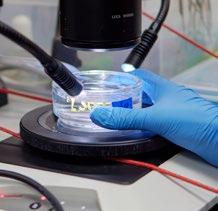
PIONEERING OCEANOGRAPHIC INNOVATION
 OCEAN ACADEMY
OCEAN ACADEMY
Ocean Academy delivers experiential STEM (science, technology, engineering and math) training for Bermuda’s students and teachers through compelling learning opportunities, career exposure and access to global resources.
From half-day field trips to intensive research internships for aspiring young scientists, ASU BIOS gives Bermudian students aged 8 to 22 the chance to experience locally driven but globally relevant ocean science firsthand.
We also strive to support local teachers and educators in the development and delivery of STEM curricula through a wide range of partnerships, professional development workshops and hands-on activities that are aligned with our student programs.
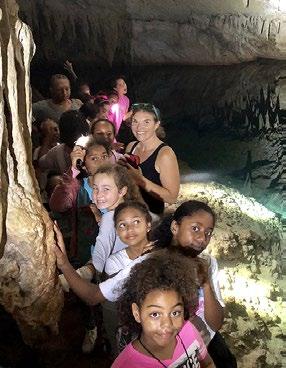
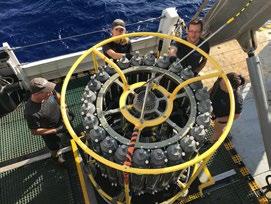
We have a rich history of pioneering innovation in oceanographic research, and we are poised for an even more promising future. We are dedicated to understanding the importance of the oceans in maintaining the overall health of the planet. Together, we embark on the journey to explore and safeguard one of our greatest assets — our ocean.
Join us in our journey to protect and preserve the seas for generations to come. We invite you to be a part of this extraordinary endeavor, where knowledge, discovery and action come together to make the difference.
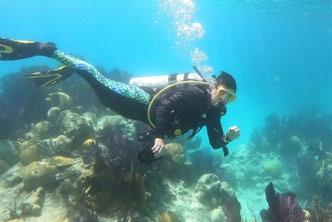
Engagement
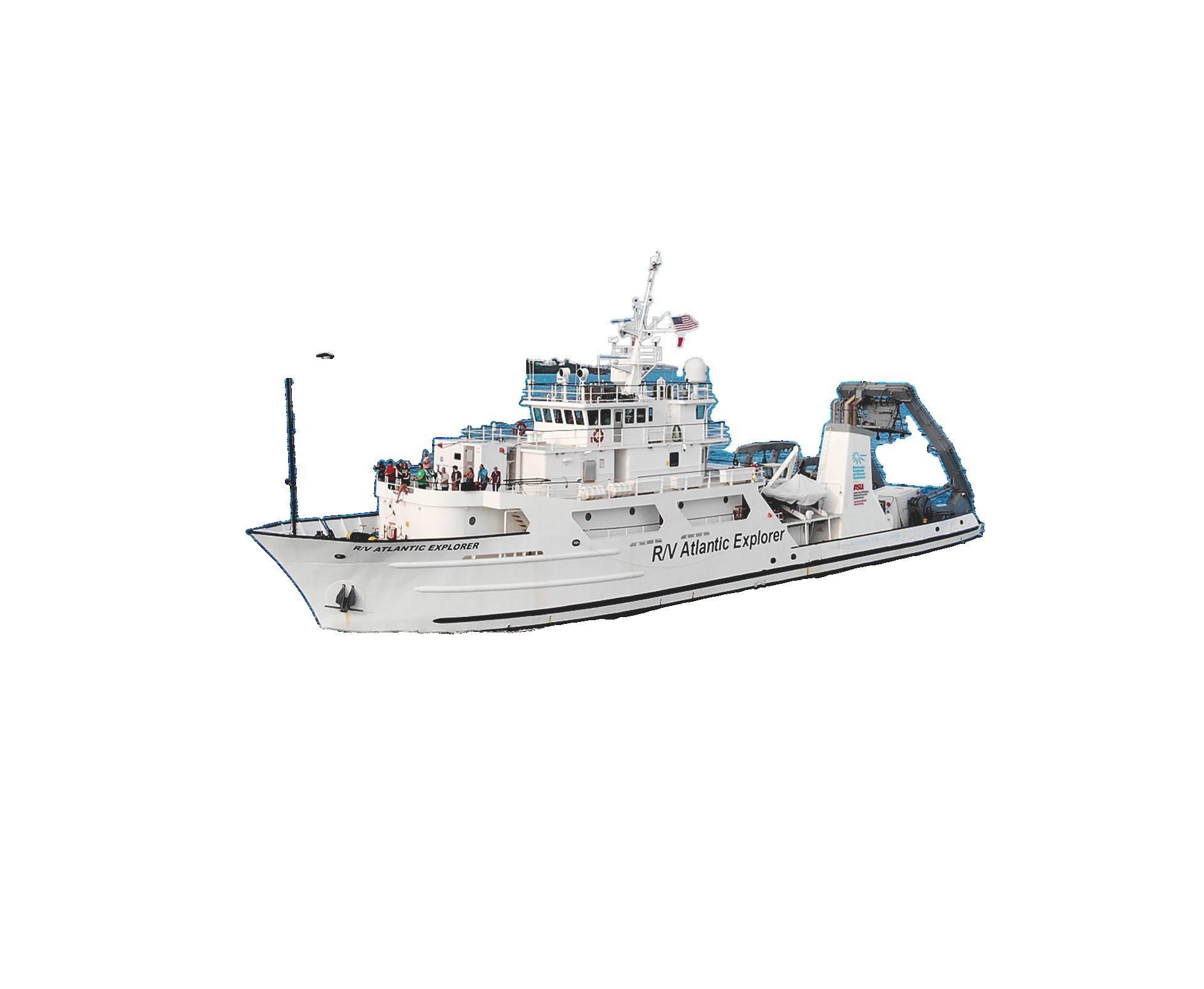
Our ocean odyssey: A timeline
Timeline
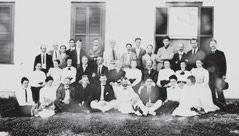
1928
William Beebe embarks on historic deep-ocean dives off the coast of Bermuda, culminating in a recordsetting 3,028-foot dive in a manned chamber, called the Bathysphere.
1903
Scientists from Harvard and New York University join with the Bermuda Natural History Society to open a marine biological center, originally called the Bermuda Biological Station.
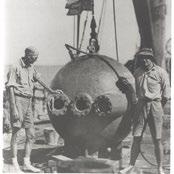
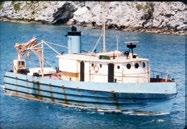
1975
Bermuda government establishes an inshore-waters monitoring program supported by the institute’s faculty and research staff (formerly the Marine Environmental Program).

1954
Hydrostation “S” is established and BIOS becomes a year-round research center. This is the beginning of the longest-running continuous ocean study in the world.
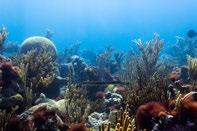

1978 Oceanic Flux Program begins, the longest record of deep-ocean sediment trap studies in the world.
1988
Becomes a critical link in an international effort to understand the ocean and atmospheric system as part of the Joint Global Ocean Flux Study.
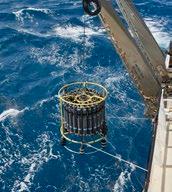
1988
The Bermuda Atlantic Time-series Study (BATS) begins, establishing BIOS as one of two U.S. centers for time-series studies.
1988
A research tower is built at Tudor Hill in Southampton, part of the Atmosphere-Ocean Chemistry Experiment, an international long-term study of the atmospheric transport of aerosols and gasses in the North Atlantic region.
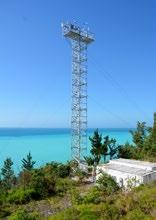
1994
The Risk Prediction Initiative, a collaboration between climate scientists and (re) insurers, is founded.
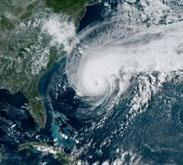
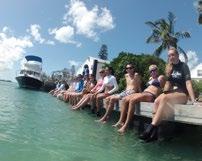
1991
Becomes a National Science Foundation Research Experiences for Undergraduates (REU) site, helping to train the next generation of scientists.
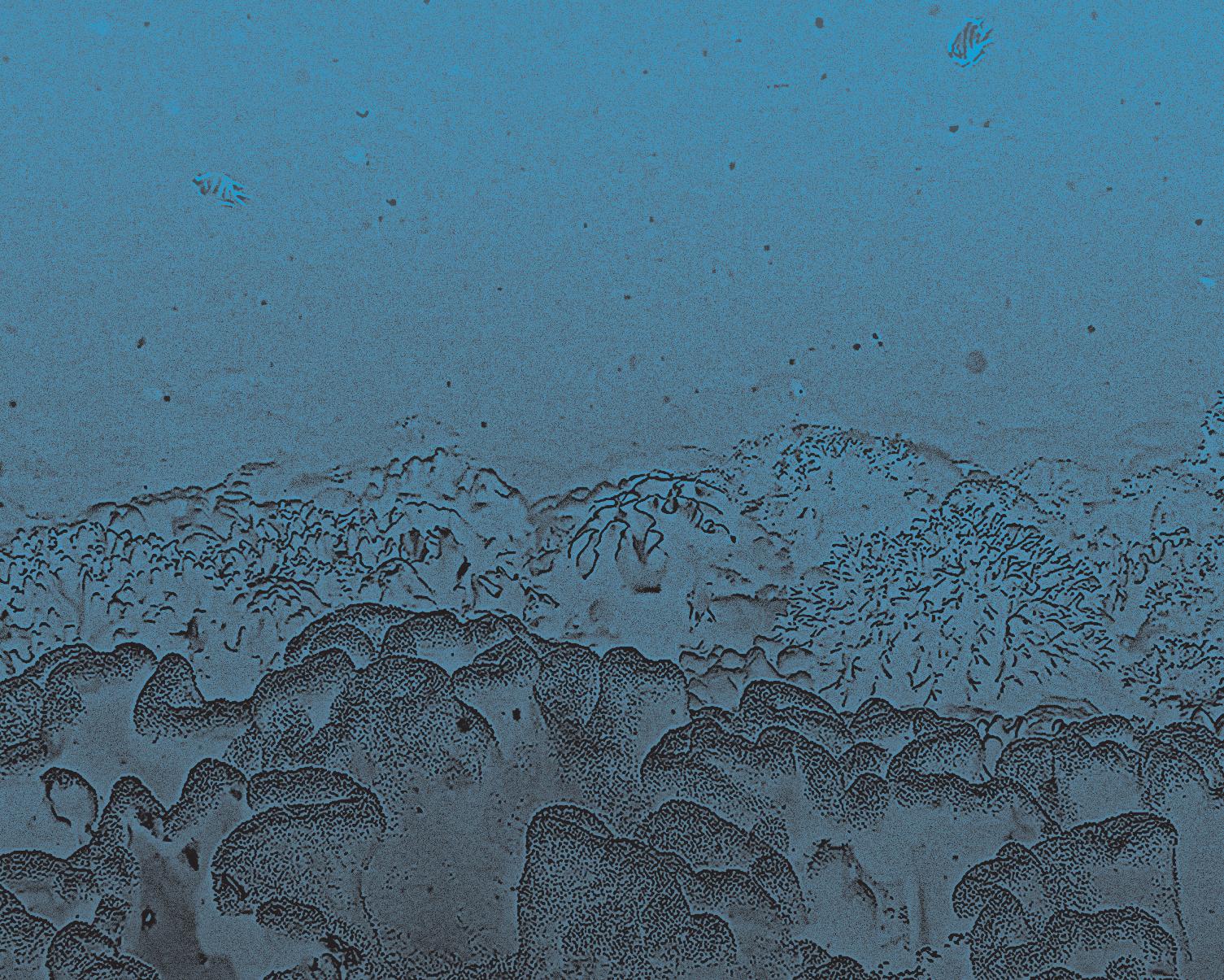
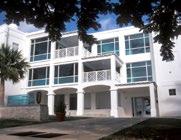
2004
The Naess Building, housing vital laboratory and office space, is completed and becomes an operational part of the campus.
2006
The research vessel Atlantic Explorer makes its first research cruise for BIOS.
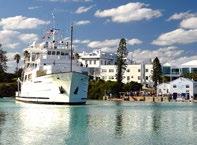
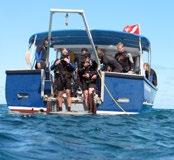
2007
Named the POGO Centre of Excellence in Observational Oceanography for training young scientists from developing nations.
2012
Ocean Academy integrates a suite of on-island education courses, offering experiential marine science education for Bermuda’s students and teachers.
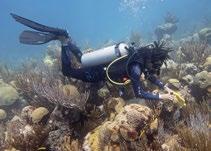

2014
Acquires its first Autonomous Underwater Vehicle, a glider using innovative technology to increase the frequency and spatial coverage of BIOS’ traditional oceanographic shipbased measurements.
2015
The Bermuda Institute of Ocean Sciences-Simons Collaboration for Ocean Processes and Ecology (BIOSSCOPE) program is funded to study the microbial ecology of the Sargasso Sea and advance our understanding of the role this community plays in the global carbon cycle.
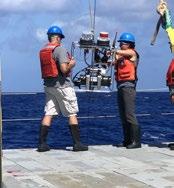
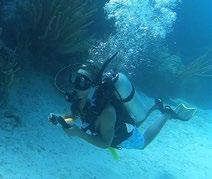
2021
One of 13 institutions selected to participate in a new NSF Science and Technology Center (STC), the Center for Chemical Currencies of a Microbial Planet (C-COMP).
2021
Joins the Julie Ann Wrigley Global Futures Laboratory at Arizona State University, supporting its mission to help ensure a habitable planet and a future in which well-being is attainable.
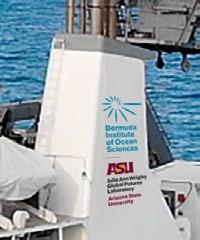

2022
The College of Global Futures announces the launch of its fourth school, the School of Ocean Futures, which advances learning, discovery and partnerships that shape a thriving global future.
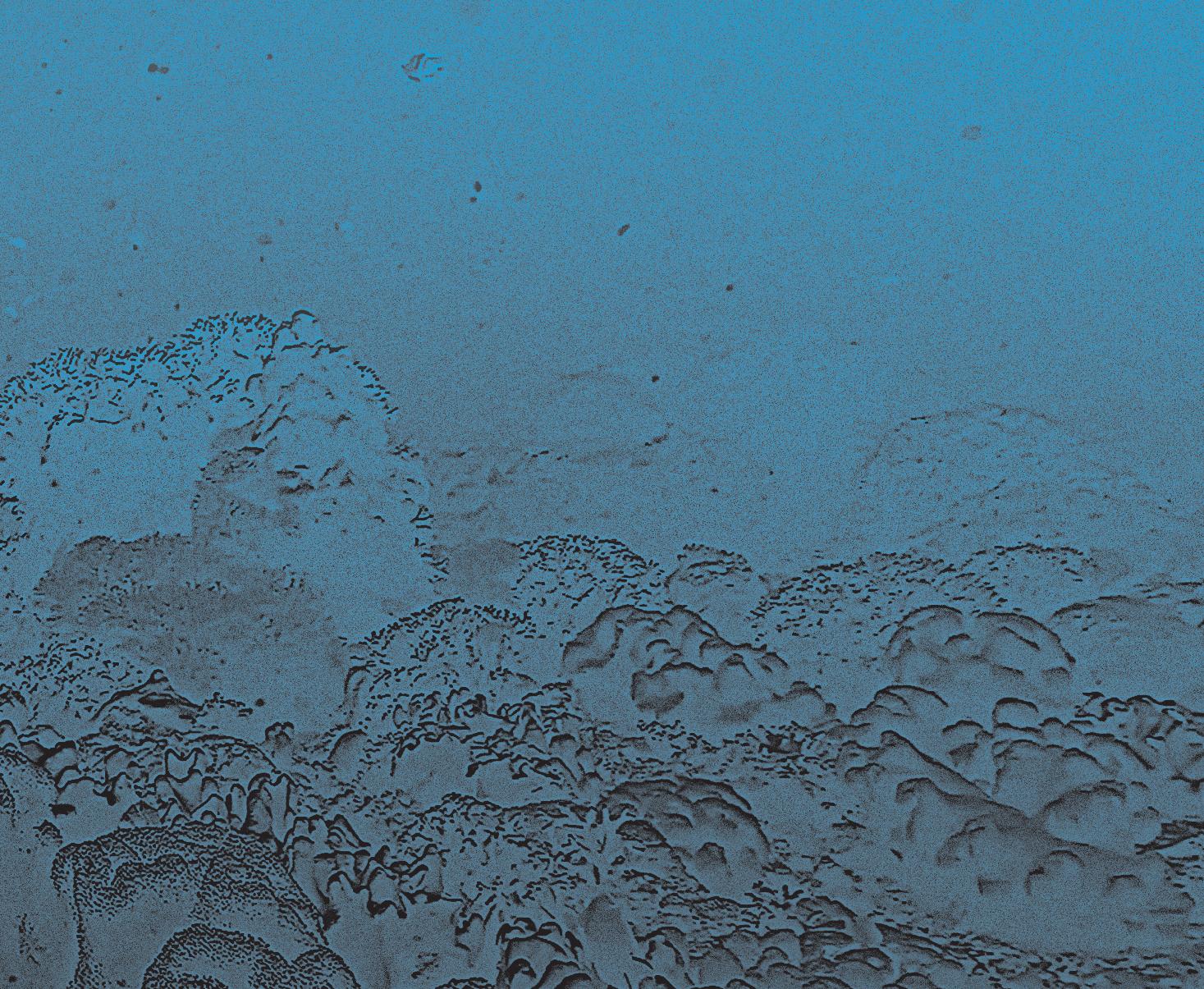
2023
Celebrates 120 years of oceanographic research with an emphasis on the North Atlantic Ocean and the Bermuda platform, anchoring a unique part of the global oceanobserving system.
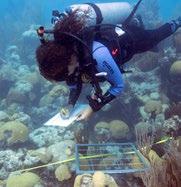
THE FUTURE IS BRIGHT
Through ASU BIOS, students experience the cutting edge of ocean science with leading experts, advanced facilities and partners across the globe. Together, we are addressing the highly interlinked, complex problems that affect our oceans and our planet. Join us in supporting our global futures.
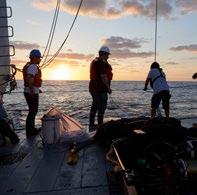
1903 2023 ASU BIOS is a U.S. 501(c)(3) charitable organization and a Bermuda Registered Charity #116. Gifts are deductible for U.S. taxpayers as permitted by law. Produced by ASU Knowledge Enterprise. © 2024 Bermuda Institute of Ocean Sciences | Julie Ann Wrigley Global Future Laboratory, Arizona State University We’d love to hear from you. Be in the know on ocean information by signing up for our newsletter at: currents@bios.asu.edu bios.asu.edu EMAIL : bios.info@bios.asu.edu Bermuda Institute of Ocean Sciences 17 Biological Station St. George’s GE 01, Bermuda CONTACT US: For inquiries about our educational opportunities, email: bios.education@bios.asu.edu





























 OCEAN ACADEMY
OCEAN ACADEMY


























